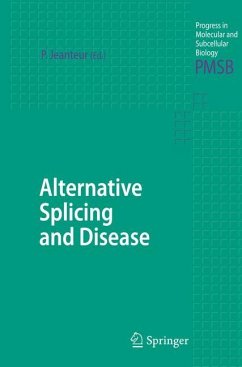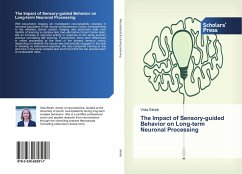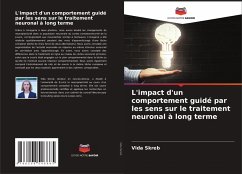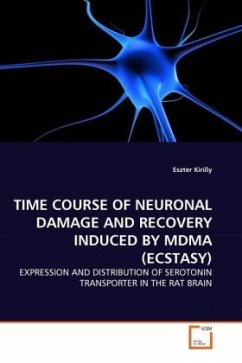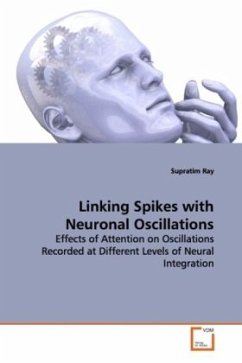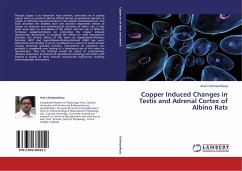
Long-lasting stress-induced changes in neuronal alternative splicing
Stress-induced molecular changes in the mammalian brain
Versandkostenfrei!
Versandfertig in 6-10 Tagen
32,99 €
inkl. MwSt.

PAYBACK Punkte
16 °P sammeln!
Ample information suggests multileveled relationshipsbetween long-term psychological stress responses andalternative splicing the process which yieldsdifferent mRNAs from the same gene. However, thenature of these relationships remains unclear. EranMeshorer studied the stress-induced changes inalternative splicing at Hermona Soreq s lab and shedlight on the molecular pathways that lead to suchresponses. Meshorer focused on a particular mRNA -acetylcholinesterase (AChE), which isneuronally-expressed, stress-responsive, and yieldsalternatively spliced products, thus serving as anadequate model f...
Ample information suggests multileveled relationships
between long-term psychological stress responses and
alternative splicing the process which yields
different mRNAs from the same gene. However, the
nature of these relationships remains unclear. Eran
Meshorer studied the stress-induced changes in
alternative splicing at Hermona Soreq s lab and shed
light on the molecular pathways that lead to such
responses. Meshorer focused on a particular mRNA -
acetylcholinesterase (AChE), which is
neuronally-expressed, stress-responsive, and yields
alternatively spliced products, thus serving as an
adequate model for this purpose. The book begins with
an introduction covering the general areas of stress
responses, their long-term consequences, the
mechanism of splicing and alternative splicing,
neuritic translocation of mRNAs and highlights the
AChE gene and its protein products as putative
mediators of such long-term consequences. The results
section depicts 3 works describing 3 and 5
alternative splicing of AChE and a potential mediator
of the stress-induced responses. Finally, the book
ends with a discussion on the consequences of such
responses, linking stress responses with aging.
between long-term psychological stress responses and
alternative splicing the process which yields
different mRNAs from the same gene. However, the
nature of these relationships remains unclear. Eran
Meshorer studied the stress-induced changes in
alternative splicing at Hermona Soreq s lab and shed
light on the molecular pathways that lead to such
responses. Meshorer focused on a particular mRNA -
acetylcholinesterase (AChE), which is
neuronally-expressed, stress-responsive, and yields
alternatively spliced products, thus serving as an
adequate model for this purpose. The book begins with
an introduction covering the general areas of stress
responses, their long-term consequences, the
mechanism of splicing and alternative splicing,
neuritic translocation of mRNAs and highlights the
AChE gene and its protein products as putative
mediators of such long-term consequences. The results
section depicts 3 works describing 3 and 5
alternative splicing of AChE and a potential mediator
of the stress-induced responses. Finally, the book
ends with a discussion on the consequences of such
responses, linking stress responses with aging.




